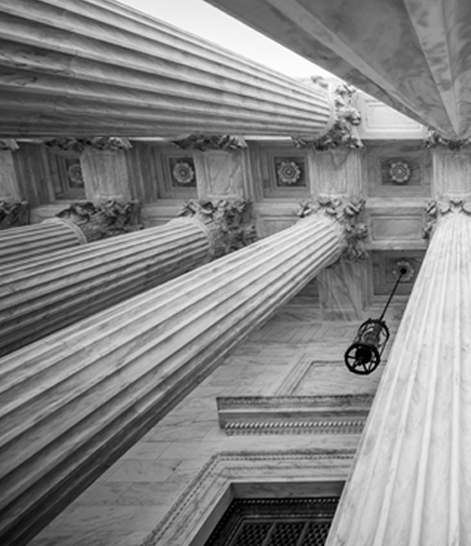
The stakeholders in copyright law rarely agree on anything in the ongoing policy debate, but most conclude that reform is essential. Federal copyright legislation has not seen a significant update since 1999, leaving the law vulnerable to criticism for failing to address the ever-changing world of media and technology. With both houses of Congress and the White House now under Republican control, there is a greater likelihood of policy movement.
Copyright issues do not necessarily divide politicians along partisan lines. Rather, perspectives on copyright protection and enforcement tend to revolve around one’s sympathy for content creators, media companies, technology products and services, or other related fields. Trump’s view of copyright is largely unknown: he has met with “Apprentice” creator Mark Burnett and WME-IMG co-CEO Ari Emanuel, but has also met with top technology executives, telling them, “I’m here to help.”
Despite uncertainty on the direction of copyright policy, the following areas reveal signs of potential change:
CONGRESS
Small Claims Court
- The Copyright Alternative in Small-Claims Enforcement (“CASE”) Act of 2016 was introduced as a bill to the House of Representatives last July. It would allow the Copyright Office “to serve as an alternative forum for parties to voluntarily . . . resolve certain copyright claims if the total monetary recovery sought by a party does not exceed $30,000.” Proponents praise the Act for granting wider access to copyright protection; critics fear that despite lower damages, the system could attract abuse from aggressive “trolls.”
Copyright Office Independence
- The sudden departure of Maria Pallante as Register of Copyrights in October 2016 led to renewed calls for the Copyright Office to become an independent agency, separate from its current home at the Library of Congress. R. 4241 (“Copyright Office for the Digital Economy Act”) attempted to enact this change, which would allow the Office to use its expertise to write appropriate regulations that are otherwise (perhaps awkwardly) embedded directly into the original Copyright Act.
Anti-Circumvention
- There is growing concern over the DMCA’s anti-circumvention provisions, which prohibit users of technology from “breaking the digital locks” that protect copyrighted works. Efforts such as H.R. 1587 in the previous Congress would limit the existing prohibitions to encourage legitimate activities like personal tinkering and repair of devices. Also of concern is the triennial rulemaking proceeding that collects various exceptions to the basic rule—over time, it has produced a complex regulatory scheme that invites intense lobbying from affected groups.
SUPREME COURT
If Judge Neil Gorsuch joins the Supreme Court, he could lend a decisive swing vote to the next landmark copyright case. While not a copyright scholar, he did author an important opinion in the Tenth Circuit case Meshwerks, Inc. v. Toyota Motor Sales U.S.A., Inc., 528 F.3d 1258 (10th Cir. 2008). There, Judge Gorsuch held that digital models of Toyota cars, which lacked any unique shading, lighting, angle, or other choices, fell short of the “originality” standard required for copyright protection.
During his time at the Department of Justice (“DOJ”), Judge Gorsuch served on the Task Force on Intellectual Property, which fought peer-to-peer piracy and counterfeiting through civil and criminal enforcement, legislative proposals, and education initiatives. During that period (around 2006), peer-to-peer networks raised major concerns for content owners struggling to adapt to a digital distribution model. If the government’s pro-enforcement stance rubbed off on Gorsuch, he may still harbor some sympathy for industries affected by online copyright infringement.
DEPARTMENT OF JUSTICE
Jeff Sessions, nominee for Attorney General, would need to decide whether the Department of Justice will continue to defend its controversial interpretation of the consent decrees governing the music licensing system. That interpretation in August of 2016 required partial owners of musical compositions to license complete use of the work; this interpretation would simplify the business model of digital music services while jeopardizing the stability of the publishing industry, as co-writers might not be able to rely on accurate royalty payments. The DOJ, under new leadership, could choose to drop its pending appeal to the Second Circuit regarding the ruling, though Sessions’ position on the issue is unclear.
(Note: Gerard Fox Law currently represents a group of songwriters seeking to reverse the DOJ’s ruling. See Songwriters of North America v. United States Department of Justice.)
SECRETARY OF COMMERCE
Wilbur Ross, Trump’s pick for head of the Department of Commerce, has advocated “cracking down” on intellectual property theft in places like China (echoing Trump’s critical attitude toward Chinese trade).
In Conclusion
Copyright was certainly not a focal point of the 2016 presidential campaign, nor has it dominated the headlines in the early days of the new administration. Before long, however, the federal government will grapple with copyright policy in one form or another. The most likely outcome: as always, not everyone will be satisfied.
Trevor Maxim is a 3L at USC Gould School of Law and a Law Clerk in Gerard Fox Law's Los Angeles Office